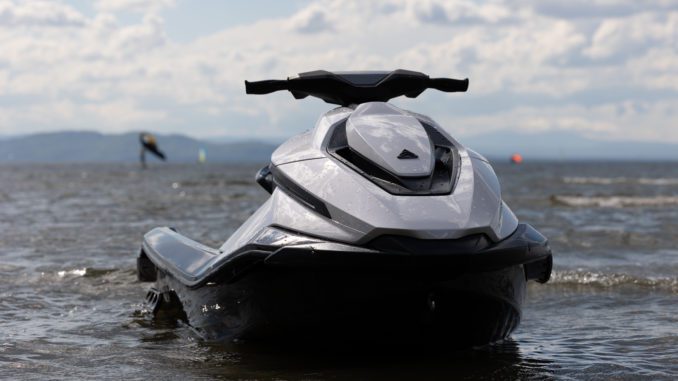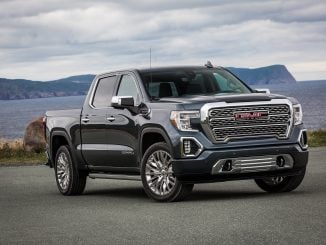
BURLINGTON, Vt. — I have a love-hate relationship with personal watercraft. It’s not about the boats themselves, mind you.
The PWC (Jet-Ski is a Kawasaki trademark) is fantastic, like a motorcycle skimming across the water. They’re fast, fun, and as close as you can get to feeling like a dolphin playing in the waves.
They’re also often ridden by inconsiderate morons, ripping across quiet lakes, making lots of noise, getting in the way of larger boats whose captains wonder if they’re about to be involved in a very long personal injury lawsuit, and generally annoying everyone within range.
But they’re also fun as hell, which is why Taiga, a Montreal-based startup, has built the Orca — a new personal watercraft designed to be electric from the ground up.
The Orca looks like any other PWC. It features seating for two, handlebars with controls, some storage spots, and the shape you’d expect. There’s no reinventing the Jet-Ski here.
All the exciting bits are underneath, like a giant lithium-ion battery. Sure, it still has a jet pump to rocket water through a tube and propels it forward — and it also can propel backward, kind of. One annoying thing about riding a PWC is when you’re trying to dock or pull onto a trailer. If you mess up your line, there’s no way to reverse it. You’re stuck trying to make a U-turn or hoping you don’t bump everything up too severely.
Because an electric motor drives the impeller, it’s easy to spin it in reverse. It won’t let you reverse at full speed, of course, because of the way the impeller and the water pipe work, but there is an opening beneath the craft that allows water to flow backward and gently push you in reverse at 1-2 mph. That’s enough to get you into position on a dock with ease.
Riding the Orca is akin to any standard PWC, and it’s far from quiet. It makes up to 160 horsepower at full tilt and can rip through the water at over 60 mph. The wind, water, and impeller add up to an adventurous and noisy experience. But when you come to a stop, the silence is intoxicating.
If you’ve ever ridden a PWC with friends, you might have experienced coming to a stop to float around and chat for a bit. With a traditional craft, you have to turn off the engine to be heard, and you also need to avoid a cloud of exhaust fumes billowing forth. On a breezy day, the latter might not be a big deal, but the ability to just come to a stop, chat for a bit, and then take off again is lovely.
And take off it can. There are a few different trim levels to the Orca, but I was on the top-tier Carbon which starts at $26,500. It’s pricey, but not the two-person unit is competitive with three-person units from Yamaha or Kawasaki and with similar power. Because it’s a short-length, two-person craft, it is extraordinarily maneuverable and perfectly happy to perform all manner of tricks and stunts if you have the ability. I do not, but I spoke to other more experienced journalists who were impressed.
It’s good for an hour or two of riding, depending on how aggressive you are with the throttle. Taiga says it has a range of more than 25 miles, but that’ll be if you lock it into Range mode, which limits your max speed and power. Still, 45 minutes on a PWC is a nice amount of time, though folks who like to ride all day will say that this isn’t nearly enough. And it’s not, for them.
But for many folks, the Taiga Orca is a fascinating on-water option. It’s capable of both Level 2 charging at 6.6kWh (available at every dock that has shore power for boats, as the Orca includes a travel charger) and DC Fast Charging, which is coming to more marinas as electric watercraft become more popular.
For someone who owns a lake house and has PWC in the water all the time, it’d be easy to plug in at their dock and always have a fully-charged Orca ready to go without needing to worry about filling up with fuel. Eliminating that hassle alone might be worth the cost of admission.
And for yacht owners with water toys, the Orca makes perfect sense. Hauling fuel around on your boat for your PWCs is annoying at best, and you can charge an Orca off the electricity you already have onboard your yacht.
Sure, it’s expensive and still in limited production, but there are plenty of expensive and luxurious water toys about — and more than a few folks driving their luxury electric SUVs down to their boat slip.
But the electric revolution has come to the water, and it has some excellent pros and some annoying cons, but those will improve over time. I can’t wait.
Deliveries of the Taiga Orca Carbon began earlier this summer.



